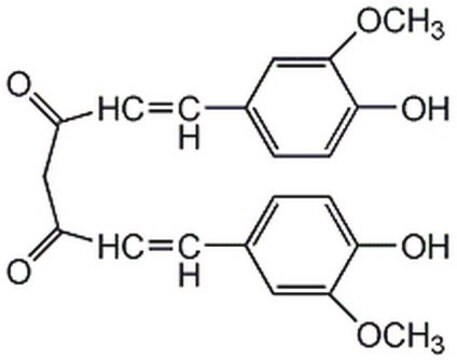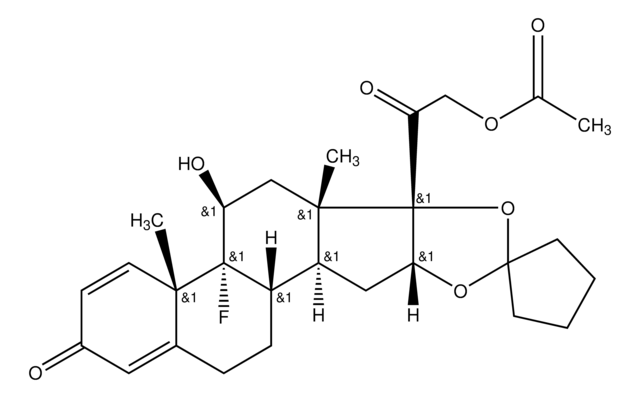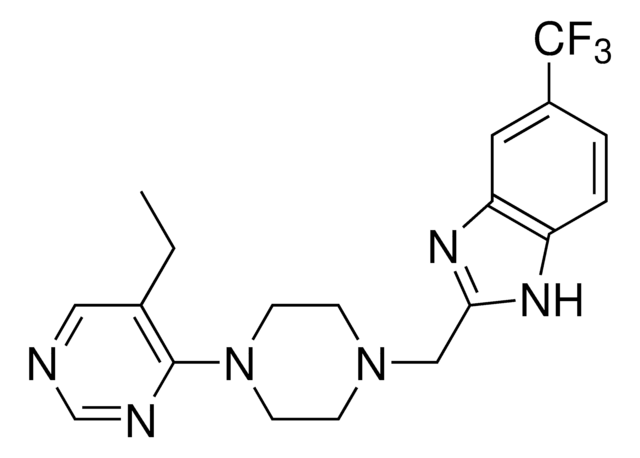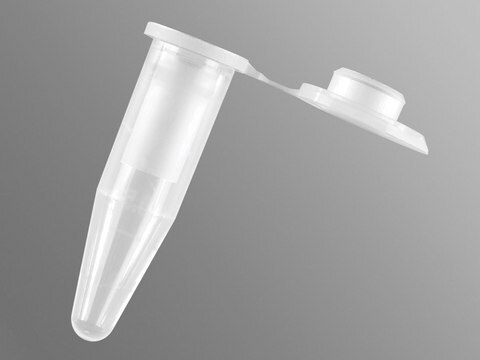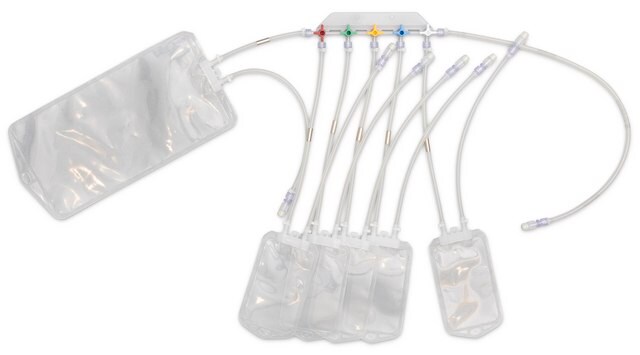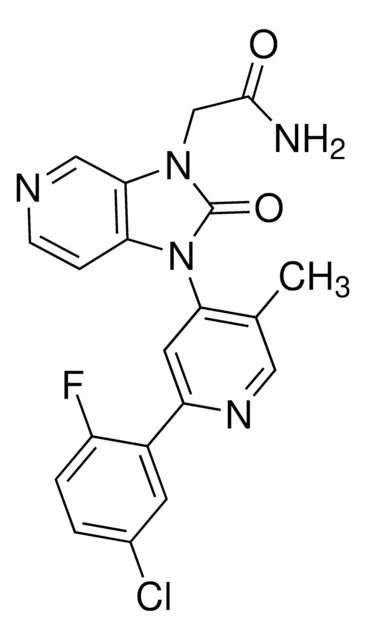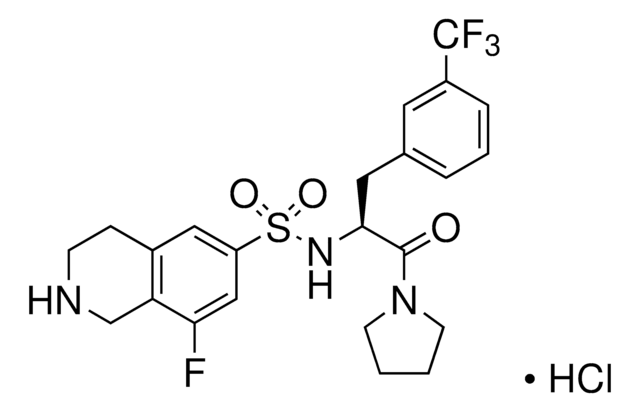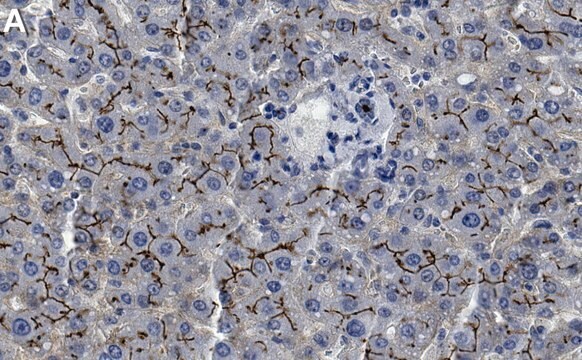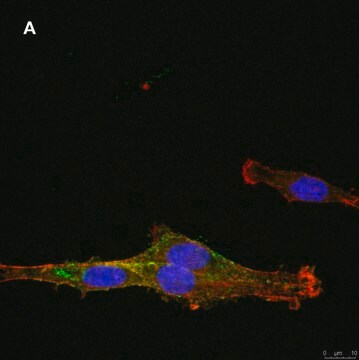382115
Histone Acetyl Transferase Inhibitor VII, CTK7A
The Histone Acetyl Transferase Inhibitor VII, CTK7A controls the biological activity of Histone Acetyl Transferase. This small molecule/inhibitor is primarily used for Cell Structure applications.
Synonyme(s) :
Histone Acetyl Transferase Inhibitor VII, CTK7A, HAT Inhibitor VII, p300/CBP Inhibitor V, PCAF Inhibitor III, Sodium-4-(3,5-bis(4-hydroxy-3-methoxystyryl)-1H-pyrazol-1-yl)benzoate, HBC, Na, Sodium-4-(3,5-bis(4-hydroxy-3-methoxystyryl)-1H-pyrazol-1-yl)benzoate, HBC, Na, HAT Inhibitor VII, p300/CBP Inhibitor V, PCAF Inhibitor III
About This Item
Produits recommandés
Niveau de qualité
Pureté
≥99% (HPLC)
Forme
powder
Fabricant/nom de marque
Calbiochem®
Conditions de stockage
OK to freeze
protect from light
Couleur
tan
Solubilité
DMSO: 100 mg/mL
Conditions d'expédition
ambient
Température de stockage
−20°C
Chaîne SMILES
OC1=CC=C(C=C1OC)/C=C/C2=CC(/C=C/C3=CC=C(O)C(OC)=C3)=NN2C4=CC=C(C=C4)C(O[Na])=O
Description générale
Conditionnement
Avertissement
Autres remarques
Shim, J.S., et al. 2004. Chem. Biol.11, 1455.
Shim, J.S., et al. 2002. Bioorg. Med. Chem. Biol.10, 2439.
Informations légales
Code de la classe de stockage
11 - Combustible Solids
Classe de danger pour l'eau (WGK)
WGK 2
Point d'éclair (°F)
Not applicable
Point d'éclair (°C)
Not applicable
Certificats d'analyse (COA)
Recherchez un Certificats d'analyse (COA) en saisissant le numéro de lot du produit. Les numéros de lot figurent sur l'étiquette du produit après les mots "Lot" ou "Batch".
Déjà en possession de ce produit ?
Retrouvez la documentation relative aux produits que vous avez récemment achetés dans la Bibliothèque de documents.
Notre équipe de scientifiques dispose d'une expérience dans tous les secteurs de la recherche, notamment en sciences de la vie, science des matériaux, synthèse chimique, chromatographie, analyse et dans de nombreux autres domaines..
Contacter notre Service technique